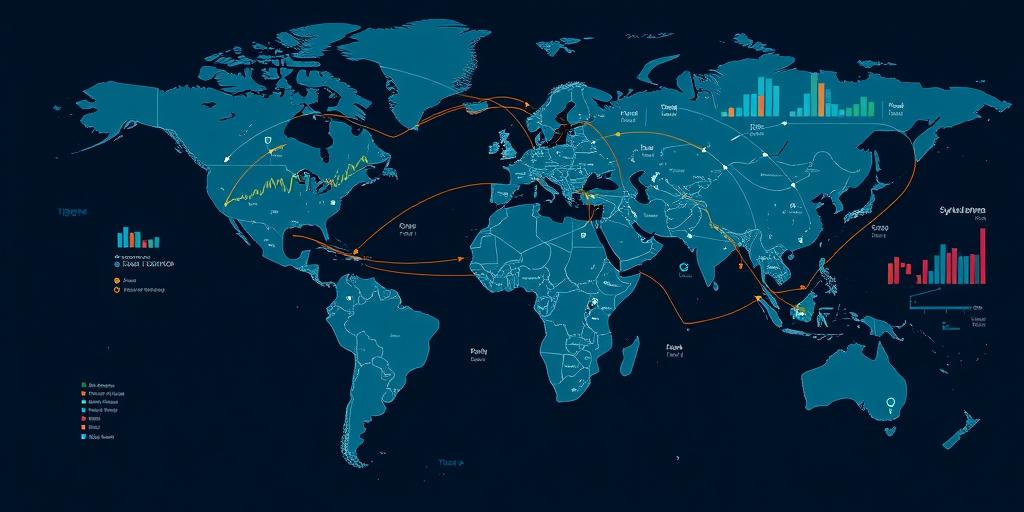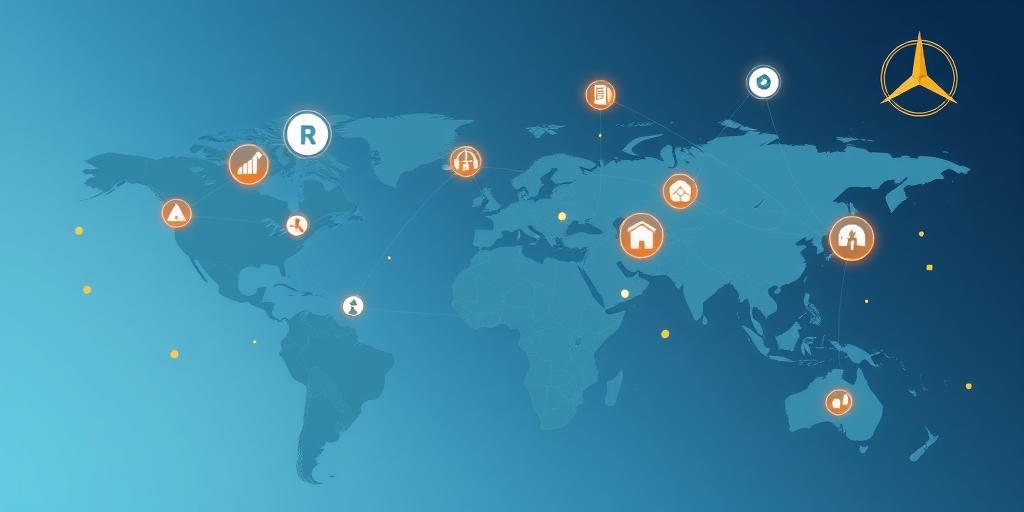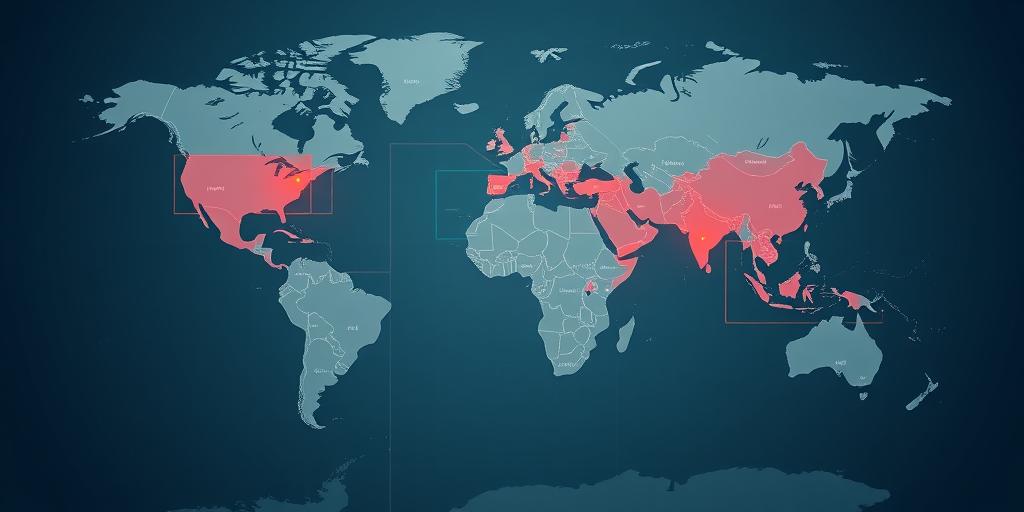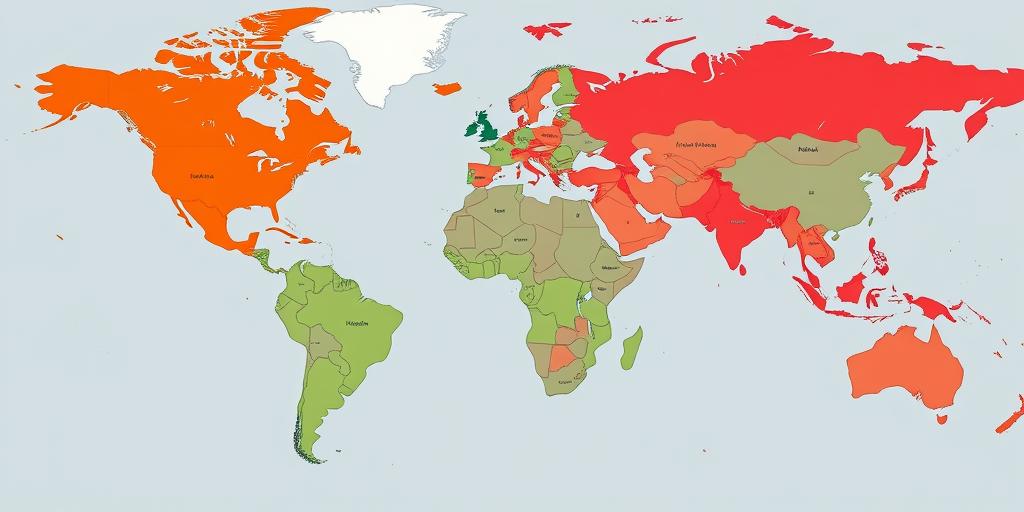The Geopolitical Impact of Global Economic Trends
Explore the geopolitical impact of global economic trends, including globalization, technological advancements, and climate change. Understand how these trends shape international relations and power dynamics.

The Geopolitical Impact of Global Economic Trends
The Geopolitical Impact of Global Economic Trends
Global economic trends exert a profound influence on the geopolitical landscape, shaping international relations, power dynamics, and security considerations. Understanding these trends and their potential impacts is crucial for policymakers, businesses, and citizens alike.
Key Global Economic Trends
Several key trends are currently reshaping the global economy:
- Globalization and Deglobalization: While globalization has fostered interconnectedness and economic growth, recent events have sparked discussions about deglobalization and regionalization. Trade wars, supply chain disruptions, and geopolitical tensions are driving this shift.
- Technological Advancements: Rapid advancements in artificial intelligence, automation, and other technologies are transforming industries, creating new economic opportunities, and disrupting existing labor markets. These advancements also have significant implications for national security and strategic competition.
- Demographic Shifts: Aging populations in developed countries and rapid population growth in developing countries are creating demographic imbalances that affect labor supply, consumption patterns, and social welfare systems. These shifts can also lead to increased migration and geopolitical tensions.
- Climate Change: Climate change is an increasingly pressing issue with far-reaching economic and geopolitical consequences. Extreme weather events, resource scarcity, and rising sea levels can destabilize economies, exacerbate conflicts, and drive mass migration.
- Rising Inequality: Income and wealth inequality are increasing in many countries, leading to social unrest, political polarization, and economic instability. These trends can also undermine democratic institutions and create opportunities for extremist groups.
Geopolitical Impacts
These global economic trends have significant geopolitical impacts:
- Shifting Power Dynamics: Economic power is shifting from developed to developing countries, particularly China and India. This shift is reshaping the global balance of power and creating new opportunities and challenges for international cooperation.
- Increased Competition: Competition for resources, markets, and technological dominance is intensifying among major powers. This competition can lead to trade wars, cyberattacks, and even military conflicts.
- Geopolitical Instability: Economic instability, social unrest, and climate change can destabilize countries and regions, creating opportunities for extremist groups and transnational criminal organizations.
- New Alliances and Partnerships: Countries are forming new alliances and partnerships to promote their economic and security interests. These alliances can reshape the geopolitical landscape and create new opportunities for cooperation and conflict.
- Increased Risk of Conflict: Economic tensions, resource scarcity, and geopolitical competition can increase the risk of conflict between countries. These conflicts can have devastating consequences for regional and global security.
Policy Implications
Addressing the geopolitical impacts of global economic trends requires a comprehensive and coordinated policy response. Key policy measures include:
- Promoting Sustainable and Inclusive Growth: Policies that promote sustainable and inclusive growth can help reduce inequality, create economic opportunities, and mitigate the negative impacts of climate change.
- Strengthening International Cooperation: International cooperation is essential to address global challenges such as climate change, pandemics, and economic instability.
- Investing in Education and Innovation: Investments in education and innovation can help countries adapt to technological change and compete in the global economy.
- Managing Geopolitical Risks: Policymakers need to anticipate and manage geopolitical risks by strengthening alliances, promoting diplomacy, and investing in defense capabilities.
- Building Resilience: Countries need to build resilience to economic shocks, climate change, and other global challenges. This includes diversifying economies, strengthening infrastructure, and investing in social safety nets.
Conclusion
Global economic trends have a profound impact on the geopolitical landscape. Understanding these trends and their potential impacts is crucial for policymakers, businesses, and citizens alike. By adopting a comprehensive and coordinated policy response, countries can mitigate the risks and capitalize on the opportunities presented by these trends.





